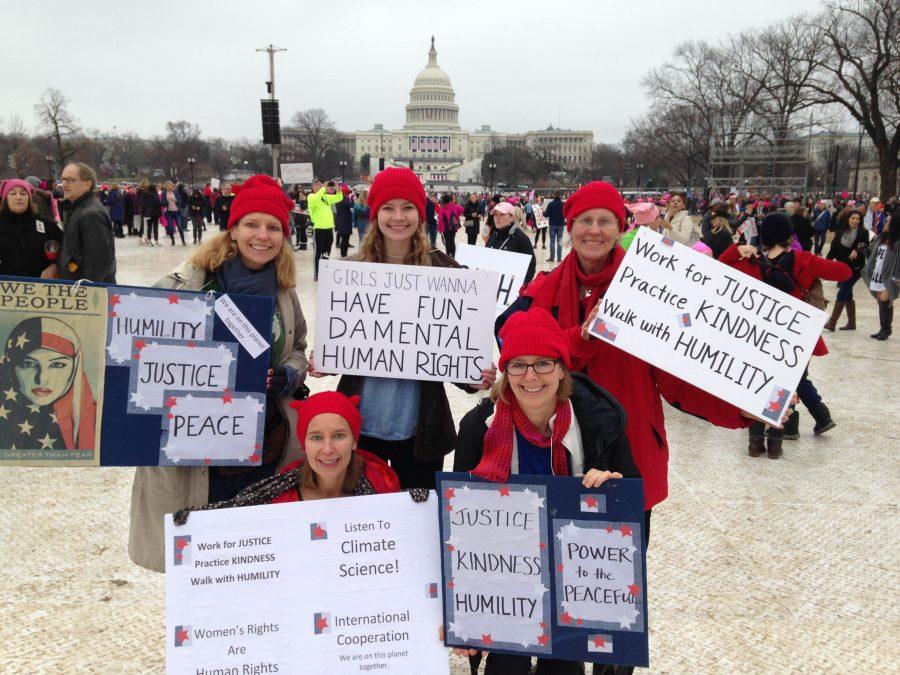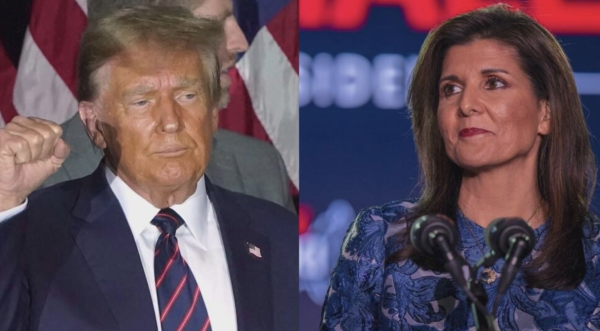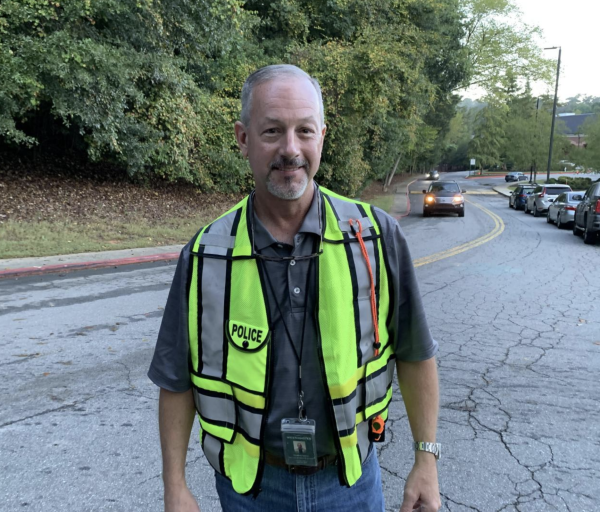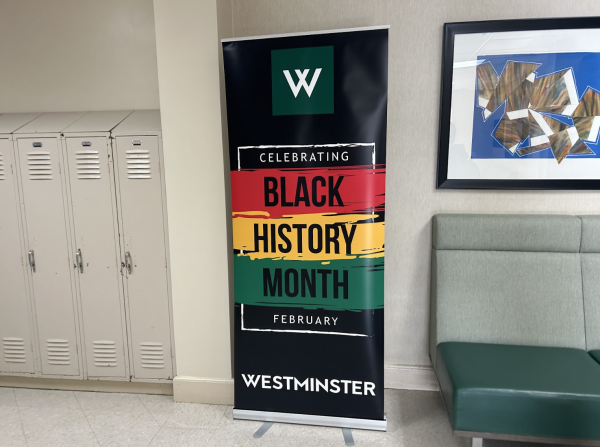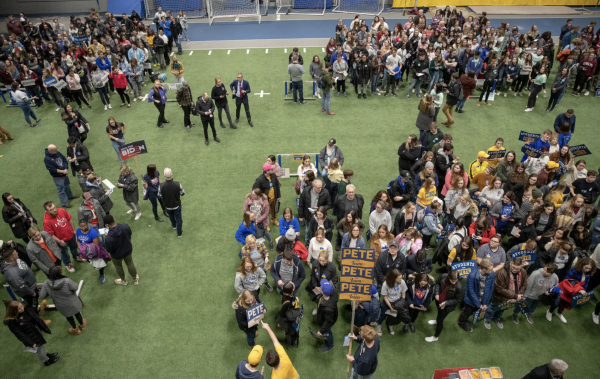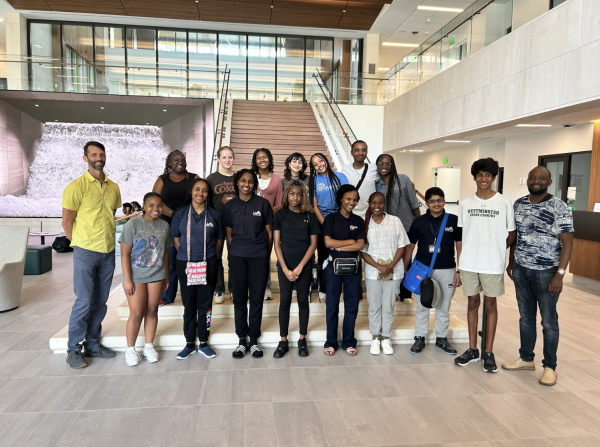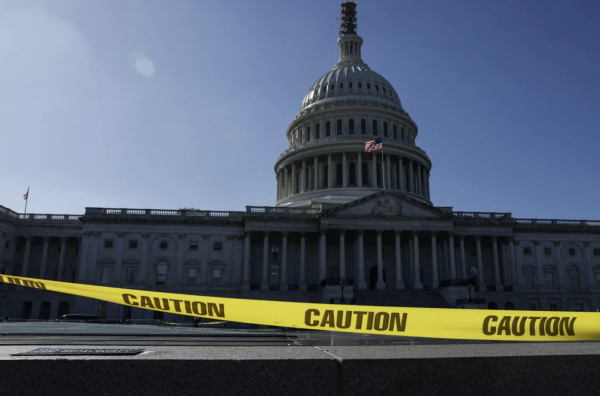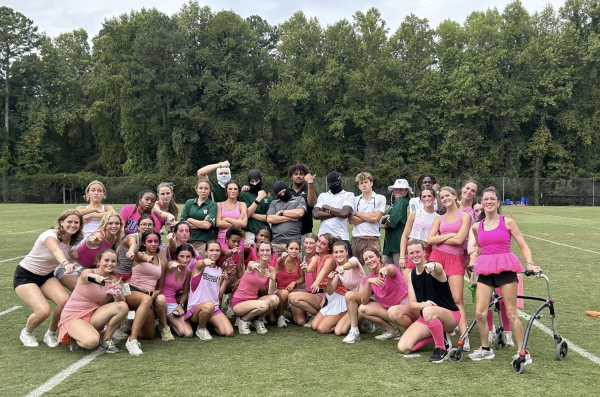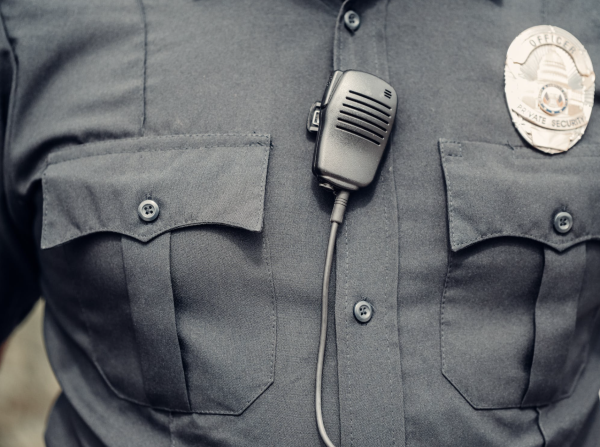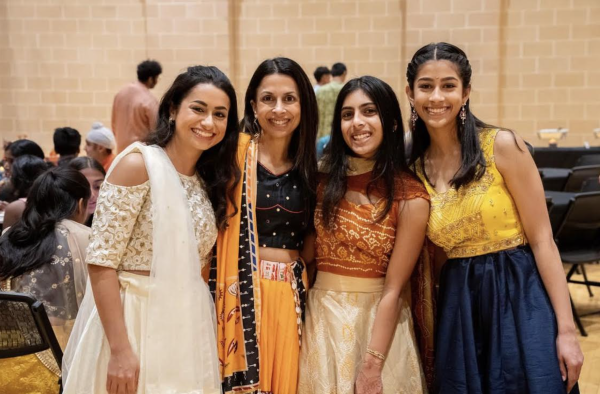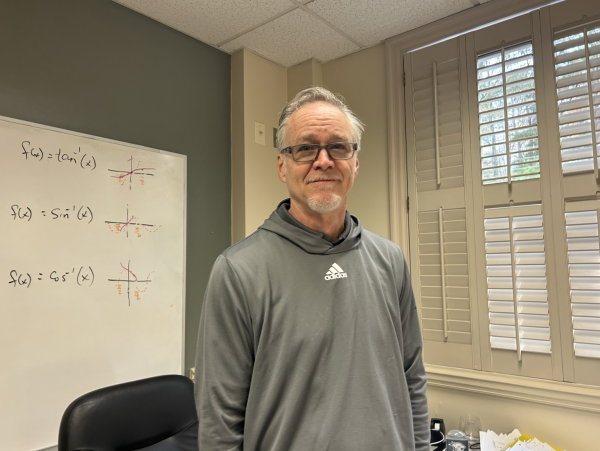Women’s marches make global impact
Seven hundred marches. Sixty countries. Seven continents.
That is the estimate of the size and spread of the women’s marches for social justice that occured on Jan. 21.
From Capitol Hill to Nairobi, the sunny beaches of Cape Town to the Antarctic, from Paris, the city of love, to Atlanta, home of the civil rights movement, millions of women and advocates of social justice took to the streets following Donald Trump’s inauguration. The new president sparked a fire in the hearts of people across the globe who take issue with his politics and campaign rhetoric. Yet the marches were not simply an anti-Trump event but a medium to fight for issues like women’s rights, climate change, and immigration. It is in support of these issues that senior Florida Huff and junior Lily Canfield traveled to Washington, D.C., last Saturday.
“I marched to stand in solidarity with those whose rights are threatened by Trump’s presidency—most notably the LGBTQ community, refugees, immigrants, Muslims, women, and people of color—and to spread the message that we will fight any infringement upon our rights,” said Huff. “I am confident that the march was successful in achieving those goals.”
For Huff, the march provided both an opportunity to protest injustice and a formative life experience.
“The D.C. march was one of the most incredible experiences of my life,” said Huff. “I went with my mom, my grandmother, two of my aunts, and my mom’s friend and her husband.”
Because of the masses of people, hearing the speakers or simply seeing a few feet ahead proved difficult, but Huff and Canfield still enjoyed the crowds of passionate people.
“Although I couldn’t see the speakers, I loved being able to read all the signs and see the people,” said Huff. “My favorite sign read, ‘We are the granddaughters of all the witches you could not burn.’ I met a lot of amazing people from all over the country, people who dropped everything to come to the march. One woman from Minnesota rode 18 hours on the bus.”
Canfield, overwhelmed by all of the chanting and people, found it difficult to pick just one favorite moment or sign.
“There were so many amazing signs. Most of the signs were really positive, hopeful, and empowering,” said Canfield. “Many had a message of spreading love with things like ‘Don’t fear difference, embrace it.’ People also chanted ‘Love, not hate, is what makes America great.’”
In addition to those like Canfield and Huff who traveled to D.C., many students opted to support the cause in Atlanta. Senior Maxxe Albert-Deitch and junior Kate Miller attended the 1.7-mile march from the Center for Civil and Human Rights to the Georgia State Capitol alongside experienced civil rights heroes such as senator John Lewis. They marched for the same reasons and with the same goals as those in D.C.
“My goal for the march was to have the opportunity to have my voice heard and support anyone who is feeling marginalized,” said Miller.
Albert-Deitch, already an active advocate for marginalized people online, explained that social media posts just did not feel like enough.
“It’s no secret that I am not happy with the state of current affairs,” said Albert-Deitch. “But talking about issues doesn’t really do much, and writing can only reach so many people. So I got on my feet and marched.”
As seen by the unexpectedly large march turnout, many people felt similarly. In D.C., Canfield was not truly prepared for the number of participators.
“There were people who had climbed up into the trees during the rally, and they said there were people as far as they could see, and more, joining the crowd,” said Canfield. “The people filled up every street while we marched, and there wasn’t empty space anywhere. People just kept coming.”
For Huff, however, the millions of people marching proved less surprising, and more inspiring.
“While I am surprised by the number of people who had the opportunity to come to a march, I’m not surprised that so many chose to raise their voices in protest,” said Huff. “This election has caused a lot of fear, anger, and disillusionment, and people are worried about the futures of their families and friends. I think the march gave us at least a little comfort and strength in such a confusing and scary time.”
